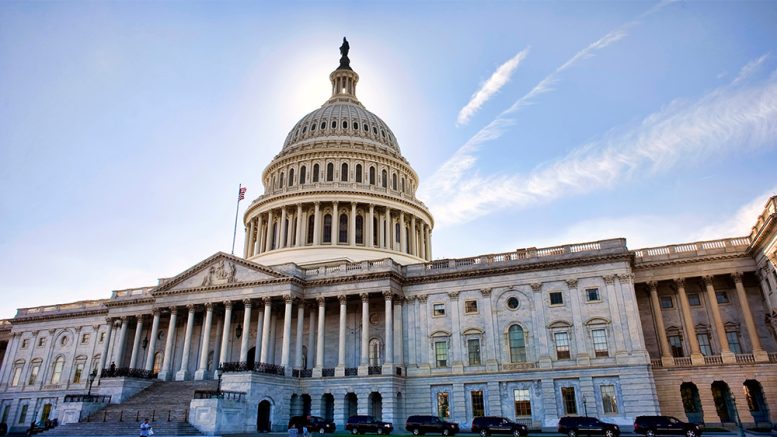On Monday, U.S. Senators Mike Braun (R-Ind.), Maggie Hassan (D-N.H.), and John Kennedy (R-La.) introduced their bipartisan bill to fix part of the Medicare billing structure that allows hospital systems to charge high hospital rates for care received at off-campus outpatient facilities.

Braun
Due to Medicare’s billing structure, even if care is received at an off-campus outpatient facility, it can be billed as though the care was provided at the main hospital campus. This means the higher hospital rate is charged.
This issue has become more prevalent as more and more small physician-owned practices and off-campus facilities are acquired by larger hospital systems. In 2020, the Congressional Budget Office estimated that taxpayers will pay close to $40 billion in excess costs to Medicare due to exorbitant facility fee payments over the next decade.
This billing practice is allowed to happen due to a provision in the 2015 Bipartisan Budget Act. This law established “site-neutral” payments under Medicare for services received at off-campus outpatient departments, but exempted most hospitals.
A solution is needed to fix this billing issue and provide more transparency on where care is actually provided and billed.
Senator Braun and Senator Hassan’s Site-based Invoicing and Transparency Enhancement (SITE) Act would end the 2015 Bipartisan Budget Act site-neutral exceptions, prevent off-campus emergency departments from charging higher rates than on-campus emergency departments when standalone emergency facilities are located in close proximity to a hospital campus, require that health systems establish and bill using a unique National Provider Identifier number for each and every off-campus outpatient department, direct the Department of Health & Human Services (HHS) to treat outpatient departments as subparts of the parent organization and to issue these subparts unique provider identifiers, and remove liability for services rendered for payers that are not billed in accordance with this section’s requirements.
The bill will use the savings from this fix to help fill the nursing shortage by creating a graduate nursing education program that would provide payments for training costs.
“Hoosiers know our health care system is broken, and one problem we can fix right now is services at off-campus outpatient facilities being billed to Medicare at higher hospital rates,” Sen. Braun. “Fixing this problem will save taxpayers 40 billion over the next decade, and this bill will apply some of those savings to fixing our nursing shortage by creating a new program to pay for training.”
More information
The SITE Act would ensure that Medicare reimburses care fairly for off-campus services, regardless of who owns the provider. Specifically, the bill would:
- End exceptions to the 2015’s Bipartisan Budget Act site-neutral payment requirements, which exempted most facilities from fair billing requirements.
- Prevent off-campus emergency departments from charging higher rates than on-campus emergency departments when standalone emergency facilities are located in close proximity to a hospital campus.
- Require that health systems establish and bill using a unique National Provider Identifier number for each and every off-campus outpatient department.
- Direct HHS to treat outpatient departments as subparts of the parent organization and to issue these subparts unique provider identifiers.
- Remove liability for services rendered for payers that are not billed in accordance with this section’s requirements.
Patients across the country also face barriers to health care access due to staff shortages. Health care providers across the country are struggling to hire and retain qualified nurses to staff their facilities, and hundreds of thousands of new nurses will need to be trained over the next decade to meet our evolving health care workforce needs. The SITE Act would respond to these needs by reinvesting savings from this bill into a national nurse training program, which would:
- Create a graduate nursing education program to provide payments for qualified advanced practice registered nurse (APRN) training costs.
- Support a network of regional partnerships between hospitals, clinical training sites, and schools of nursing.
- Create 20,000 training positions per year, phased in over six years.
- Appropriate $100 million for the program.

